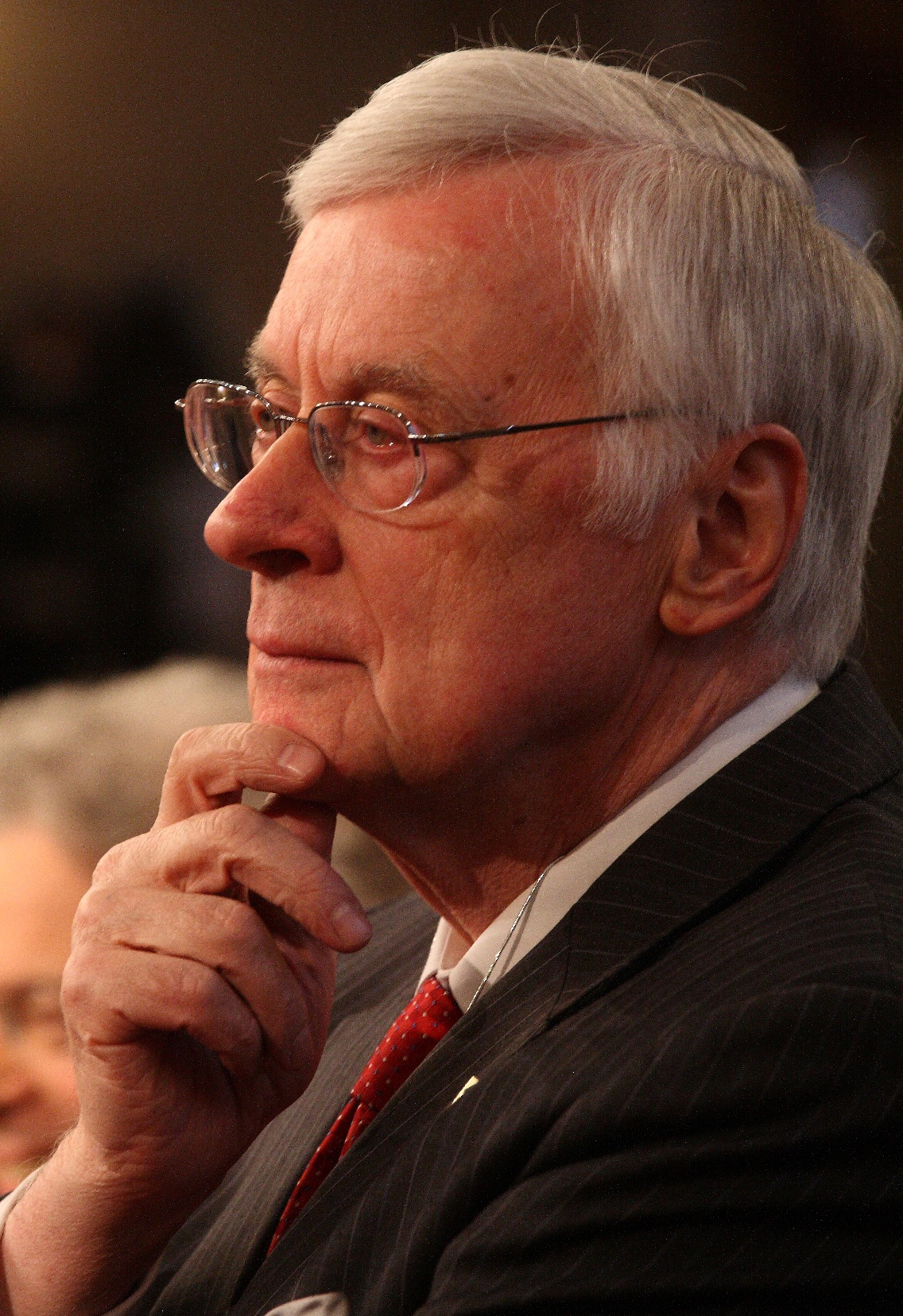"You take a fellow like this Dan Schorr, he's – I notice – he is always creating something, isn't he?" the president is heard saying. He later responds approvingly to Haldeman's news that the FBI is investigating Schorr.
That glimpse into the Oval Office is just a drop in the huge ocean that is the Miller Center's presidential recordings archive. And that's just a small part of the Miller Center itself, which devotes itself to public discourse over matters of critical national interest, from the wars in Afghanistan and Iraq to transportation policy.
The Miller Center was established 35 years ago, named for its lead donor, Burkett Miller. Its director, former Virginia Gov. Gerald Baliles, recently reflected on the center's past and future and on his own four-year tenure as its director. This Q&A was originally published in a Miller Center Report.
Q: This year the Miller Center celebrates its 35th anniversary. How has the Miller Center changed over the years?
A. The Miller Center's path to the future has been one of evolution in several areas building upon the progress of past years – the physical, from one grand, classical main building to three, the two wings (the John and Rosemary Galbraith Forum Room and the Scripps Library) complementing the original building; the intellectual, from a small cohort of faculty and staff to today's team of more than 55 scholars and support staff, and in the process, enriching and expanding thought-provoking programs of importance to the governance of the country. The center's national reputation has expanded, the intellectual engagement has been strengthened, and the financial support has increased significantly. In short, Mr. Miller's vision of 35 years ago, to make the Miller Center a national meeting place, has come to pass.
Q: You recently marked your fourth anniversary as director. What accomplishments are you most proud of? What do you like most about your job?
A: In four years, much has been accomplished, but much more remains to be achieved. The mission of the Miller Center has been clarified; national commissions have been reinstated; the National Discussion and Debate Series has been launched on PBS to significant acclaim; the report of the National War Powers Commission, co-chaired by former Secretaries of State James Baker and Warren Christopher, is now the subject of attention at the highest levels of the federal government.
The Caplin Conference on the World Economy has drawn considerable national interest; the GAGE (Governing America in a Global Era) initiative has brought new scholars and public policymakers to the Miller Center, while other studies of climate change governance, transportation, and higher education have focused national attention on these issues of importance to the governance of the country.
Indeed, the Miller Center's traditional focus on the central role in history of the American presidency has been strengthened by focusing on subjects of governance that now confront every American president. The word must be getting around, because I'm advised that the Miller Center's website is now in the top 5 percent of all websites visited worldwide. That is a tribute to the impressive work of faculty and staff and the generous financial support of the friends and supporters of the Miller Center.
All of these activities, and more, add significantly to the enrichment of public understanding of complex issues in difficult economic times. Thus, it is the drive to succeed in fulfilling the mission of the Miller Center that makes my work not just a job, but one that is intellectually enriching and a personally satisfying experience.
Q: One of your accomplishments has been to open an office in Washington, D.C. How is that going?
A: The Miller Center's presence in Washington, D.C., is exceeding all expectations. … The office is filled daily with visiting faculty, public policymakers and former Cabinet officials. The office has been the site of our meetings of the Media and Governance Task Force, the continuation of the David R. Goode National Transportation Policy Conference, and interviews conducted by the Presidential Oral History program. The office is spacious, and the location is ideal; 19th and K is a good address in Washington.
Q: It's been 20 years since you left the governor's office in Richmond. What do you think of the state of politics today? Do you ever miss it?
A: Ahh…20 years. It's amazing how time flies when one is having fun. That's the answer to your question. I don't miss it – the office or the state of politics. Let me be clear. I enjoyed the governor's office immensely, but I don't miss it. It is important for those involved in politics and public policy to remember that one should not become so intoxicated with the "perks of power" that it should seem necessary to sell one's soul to retain the public post. There is life after politics.
Q: What are your goals for the Miller Center for the next four years? What do you hope the Miller Center achieves in the next 35 years?
A: The central goal is to enhance the national reputation of the Miller Center as a "national meeting place" where engaged citizens, scholars, media representatives, business leaders and government officials can meet in a civil, nonpartisan fashion to discuss the great issues that confront our society and offer possible solutions. The focus must be on those questions that bedevil presidents and policymakers as they try to govern a country as vast, complex and challenging as ours, and it may take the next 35 years to achieve that goal.
Media Contact
Article Information
July 30, 2010
/content/not-just-job-baliles-reflects-miller-centers-35th-anniversary-and-his-tenure-director

